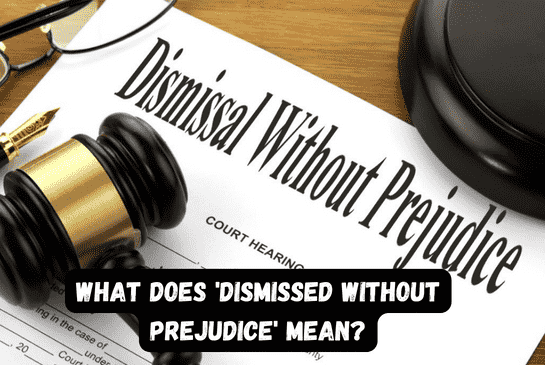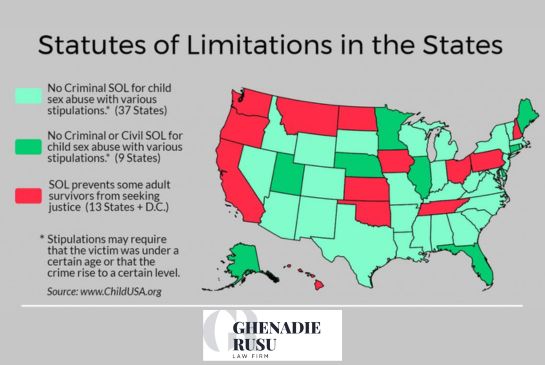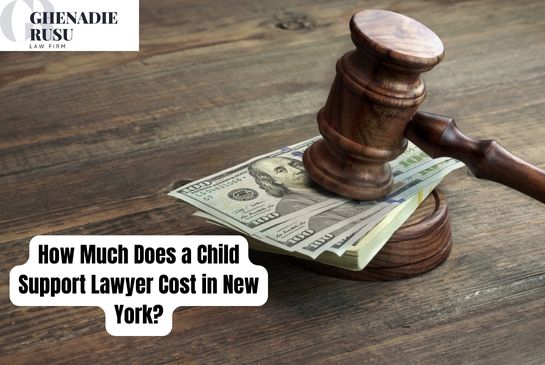When you’re involved in a legal case or facing criminal charges, understanding the dismissed without prejudice meaning is crucial. When a case is over for good, it means it can’t come back. In legal words, it got dismissed with prejudice. A dismissed with prejudice case is finished forever. This blog post will take you through this important aspect of the legal system. If you’re based in New York, you can rely on the expertise of The Law Office of Ghenadie Rusu to assist you in understanding how this concept relates to your case.
Dismissed Without Prejudice Meaning
Dismissed without prejudice refers to a court’s decision to close a case without barring the possibility of it being filed again in the future. This means that if a case is dismissed without prejudice, the plaintiff or prosecutor can bring the same charges or claim against the defendant later. This may occur if new evidence is discovered or if the plaintiff or prosecutor didn’t follow proper legal procedures when initially filing the case.
In contrast, when a case is dismissed “with prejudice,” it means that the case cannot be brought again. This is the expected outcome when a case has been resolved fairly and justly.
Cases and Charges Dismissed Without Prejudice
There are various circumstances where a case dismissed without prejudice or charges dismissed without prejudice would apply. Some common scenarios include:
- The plaintiff or prosecutor failed to serve the defendant properly with the required legal documents.
- The court lacks jurisdiction over the case or the defendant.
- The plaintiff failed to include necessary parties in the lawsuit.
- The plaintiff voluntarily dismisses the case before the trial begins.
In these situations, the case can potentially be filed again once the mistakes have been corrected or the missing information is provided.
What Does Dismissed With Prejudice Mean?
In the opposite situation, dismissed with prejudice means that the case or charges cannot be brought back to court. This can happen when the plaintiff or prosecutor has failed to prove their case, or when the court deems that the case was based on frivolous accusations or a lack of evidence. Essentially, the “dismissed with prejudice” label is the court’s way of saying that they believe their decision is final, and that it was reached based on the merits of the case. read our latest guide on What are the Immigration Attorney Fees in New York City?
Distinguishing between Voluntary and Involuntary Dismissals
Voluntary Dismissal
- The plaintiff (the person filing the lawsuit) can choose to dismiss the case.
- This dismissal can be done in two ways: With prejudice means the plaintiff cannot file the same case again. Without prejudice allows the plaintiff to file the case again later.
- With prejudice: The plaintiff cannot file the same case again.
- Without prejudice: The plaintiff can file the case again later.
Involuntary Dismissal
- The judge can also dismiss a case.
- The judge can dismiss with or without prejudice: With prejudice means the case is permanently closed. Without prejudice means the plaintiff can fix issues and possibly refile.
- With prejudice: The case is permanently closed.
- Without prejudice: The plaintiff can fix issues and possibly refile.
Consult with Our Law Office
If you’re facing a legal case or charges and would like professional advice on the implications of a decision to dismiss, you must consult with an experienced attorney. The Law Office of Ghenadie Rusu serves the New York area, specializing in immigration law expert, family law, and criminal defense. We understand the complexities of the legal system and can help you navigate your case effectively.
Call (347) 907-1248 or contact us to schedule a consultation with The Law Office of Ghenadie Rusu.
FAQs
Why would you dismiss a case without prejudice?
A case may be dismissed without prejudice for several reasons. It allows the plaintiff or prosecutor to refile their claim or charges after addressing any issues with the initial filing, such as insufficient evidence, procedural errors, or the need for further investigation.
Is dismissed with prejudice good or bad?
Being dismissed with prejudice can be seen as good from a defendant’s perspective, as it means the case is over and cannot be brought back to court. From the plaintiff’s or prosecutor’s perspective, it might be considered bad, as they no longer have the opportunity to pursue the case further.
What is the purpose of without prejudice?
The term “without prejudice” serves the purpose of allowing a case to be dismissed while leaving the possibility open for the petitioner to address issues or gather more evidence before attempting to bring the case to court again.
What is an example of a dismissed case with prejudice?
An example of a case dismissed with prejudice could include a situation where a court determines that a case has no merit due to a lack of substantial evidence, or it finds the allegations frivolous. Consequently, the court’s decision is final, and the plaintiff cannot pursue the same claim again.
Why would a case be dismissed without prejudice?
A case would be dismissed without prejudice typically if there are fixable issues with the case that preclude a successful prosecution or civil judgment at that time. This might include errors in the way the case was filed, problems with how evidence was collected, or other legislative or procedural challenges that could be corrected before refiling.
Read More: How to Apply for Special Immigrant Juvenile Status (SIJS)
References:












